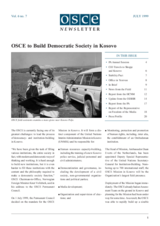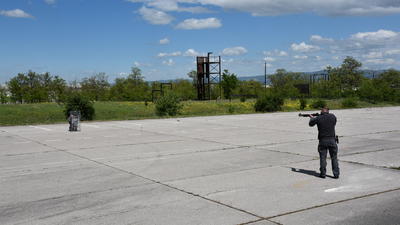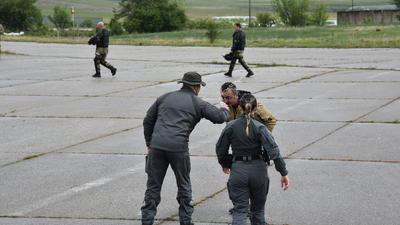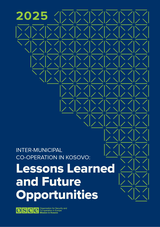About us
The Mission is the OSCE’s largest field operation and the only civilian international organization present across Kosovo that closely monitors political, justice, institutional, and security developments. It works towards consolidating core democratic institutions, promoting inter-institutional coordination at central and municipal level, strengthening the role of civil society in democratic processes, and further developing a democratic and multi-ethnic society in Kosovo.
Overview
The Mission works in a variety of fields, including:
- the protection of community rights and of cultural and religious heritage;
- monitoring the judiciary;
- mainstreaming gender;
- promoting media freedom and development;
- supporting mechanisms for anti-discrimination policies;
- improving youth participation in political and public life;
- preventing and countering terrorism;
- providing advanced police training and support to key policing and security strategies; and
- supporting the implementation of agreements made under the EU-facilitated dialogue between Prishtinë/Priština and Belgrade.
Figures
The Mission's offices, staff and budget at a glance
Offices
6 offices
The Mission has its headquarters in Prishtinë/Priština, with five additional regional centres throughout Kosovo.
Staff
440 Fixed-term staff
The Mission has 76 international and 364 local fixed-term staff (as of 31 December 2024). These figures include staff financed from extrabudgetary contributions.
Budget
€17,462,600
In 2024, the Mission operated on the basis of a Provisional Expenditure Authorization based on its 2021 Unified Budget, which amounted to €17,462,600. The extrabudgetary actual expenditure for 2024 was €755,872.
Leadership
Head of the OSCE Mission in Kosovo
Presence in the field
Headquarters, regional centres and former OSCE operations in the area
The Mission in Kosovo, with headquarters in Prishtinë/Priština, maintains five centres working on region-specific issues: Gjilan/Gnjilane, Mitrovicë/Mitrovica, Pejë/Peć, Prishtinë/Priština, and Prizren. With teams covering all 38 municipalities in Kosovo, these centres serve as hubs for conducting fieldwork through monitoring, early warning and reporting.
The Mission also works with other OSCE field operations in South-Eastern Europe to improve regional co-operation, dialogue and reconciliation.
Former OSCE field operations and related field activities in the area
OSCE Missions of Long Duration in Kosovo, Sandjak and Vojvodina
OSCE Kosovo Verification Mission / OSCE Task Force for Kosovo
History and mandate
Established in 1999 by the OSCE Permanent Council
The Mission in Kosovo’s core mandate is set out in OSCE Permanent Council decision No. 305 of 1 July 1999. It focuses on institution- and democracy-building; the protection and promotion of human and community rights; good governance; gender equality; media development and civic participation; the training of the judiciary, Kosovo Police and civil servants; and electoral support.
From 1999 to today
Following NATO’s military intervention in 1999, the United Nations Security Council adopted resolution 1244, which called for the establishment of an interim international administration in Kosovo that would stay in place until a future status for Kosovo was determined. The administration was given responsibility to re-establish a judicial system, civil administration, build democratic institutions and support reconstruction and economic revitalization in Kosovo. The OSCE was called upon to assist with the institution-building efforts, as well as with human rights and rule of law promotion.
On 1 July 1999, the OSCE Permanent Council decided to establish the OSCE Mission in Kosovo. Its primary tasks included the development of a new and democratic police force, organization of free and fair elections, development of responsible and professional media, development of functioning governmental institutions at municipal and central levels, development of political and non-governmental sectors, monitoring the judicial system and professional development of legal professionals, promotion of democratic and human rights values, and improving the position of all communities and other disadvantaged groups, including women and youth.
Results and impact
The Mission supported the establishment of several key institutions, partnering with them to strengthen and promote human rights and good governance principles. These institutions are:
- the Assembly of Kosovo;
- Ombudsperson Institution;
- the public broadcaster, Radio Television Kosovo;
- the media regulators;
- Kosovo Academy of Public Safety;
- Central Election Commission;
- Kosovo Judicial Institute (since February 2017, the Academy of Justice);
- Office of the Language Commissioner; and
- municipal community protection bodies.
Resources
Official OSCE documents and publications from the Mission in Kosovo














